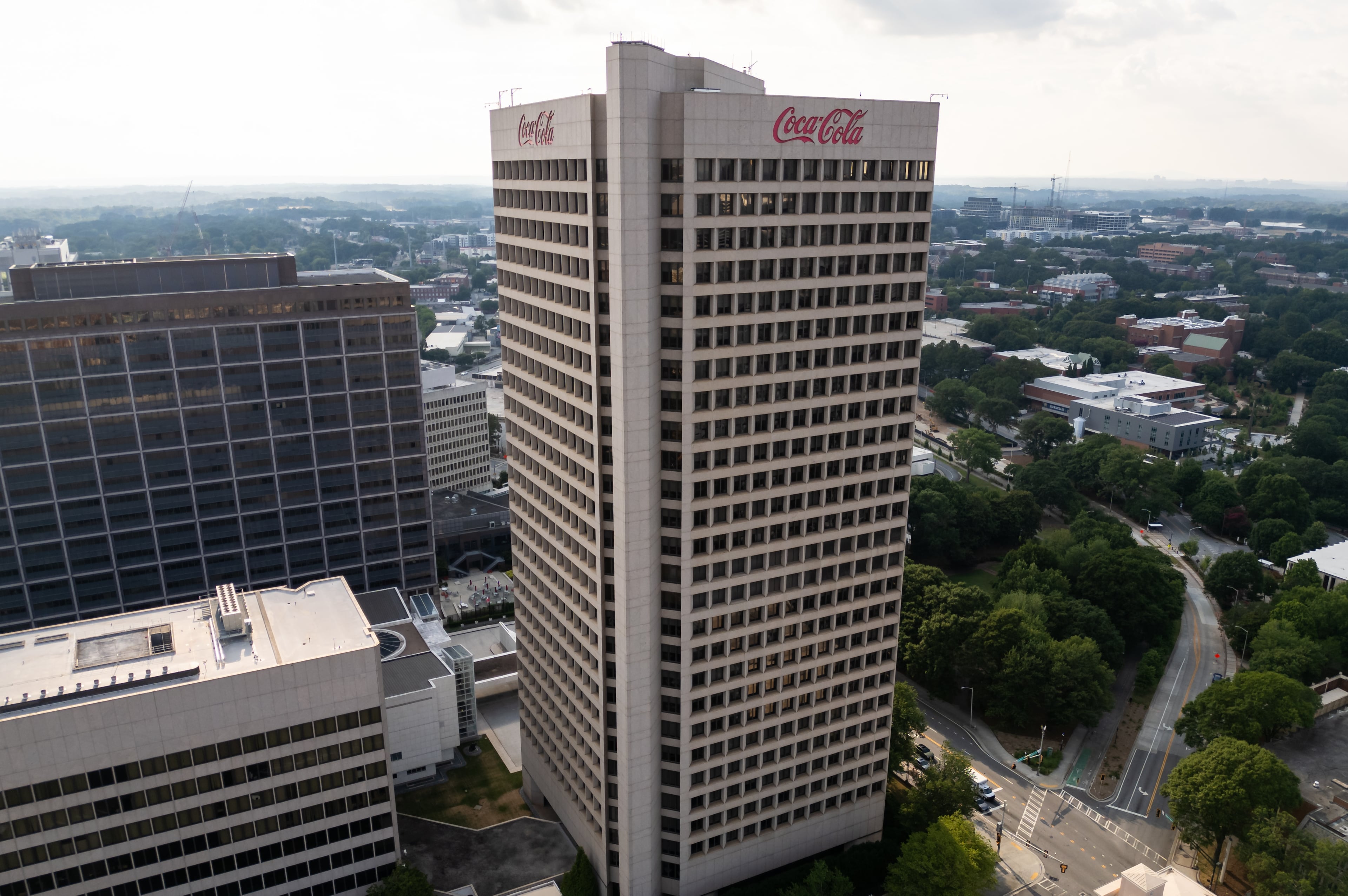Ginger is the root of success for Georgia organic operation
For more information about Verdant Kitchen, go to www.verdantkitchen.com.
In 1756, King George II granted land along the Little Ogeechee River to French Huguenots who grew, among more prosaic crops, mulberries and olives.
One-hundred-and-sixty years later, entrepreneurial Atlanta banker Mills B. Lane Sr. bought the Lebanon Plantation and applied his green thumb to Satsuma oranges, pecans and carnation cows.
Five years ago, Ross Harding and Howard Morrison — Lane’s grandson — continued the plantation’s agriculturally unique traditions by planting ginger and turmeric. Pluck, luck and America’s growing appetite for organically grown foods that double as wellness products turned Verdant Kitchen, their agro-manufacturing company, into an all-natural success story.
Sales skyrocketed. Customers now span the globe. Harding and Morrison settled last week on a much larger food-processing and distribution center in Norcross. And Oprah Winfrey, the doyenne of American trendsetters, selected Verdant’s ginger syrup and ginger-infused honey as two of her “favorite things” for 2015.
“After Oprah, our business shot up 10 times and then 20 times and just stayed there,” said Harding, 55, an industrial chemist by training who lives in Duluth. “We have been very fortunate.”
Their roots-to-near-riches tale serves as something of a textbook example of 21st century entrepreneurial success. Harding and Morrison took an odd raw material — gnarled ginger and turmeric more common to Asian palates — and turned it into a value-added product coveted by upscale cookie eaters, tea drinkers and bourbon aficionados.
Along the way they hit the burgeoning American sweet spot for organically grown, wellness-inducing foodstuffs grown in the USA.
“Farmers have got to be creative if they want to stay in business, so these are sharp guys. I love their story, their energy, their business strategy,” said Alice Rolls, the executive director of the nonprofit Georgia Organics, which promotes sustainable food and local farmers. “And it’s a nice marriage for us to see a Georgia-grown and certified organic label that’s not just known locally.”
Harding, an Australian with a lengthy corporate career, fondly remembered ginger beer, ginger candies and ginger marmalade on toast from his youth. He thought the coastal Georgia climate and soil were similar to Eastern Australia’s. So he approached Morrison, a partner in a variety of timber ventures who owns the Lebanon Plantation.
“I said, ‘It sounds like you’re smoking some funny cigarettes,’ ” Morrison, 72, told Harding.
Ginger, pungent and spicy and popular in Asian stir fries, can be yellow, white or red, with a typically tough skin. Used as a medicine, it alleviates gastrointestinal pain and inflammation and acts as an antioxidant.
Turmeric, peppery and bitter, adds taste to curry and gives mustard its bright yellow color. A member of the ginger family, turmeric also has anti-inflammatory properties and treats flatulence, jaundice, toothaches and colic.
Nearly all U.S. ginger is imported; about 2 percent is grown in Hawaii. A couple of Georgia farms grow ginger, Rolls said, but none turn the root into snaps or drink mixes.
Morrison set aside a few plots near the plantation’s gate and surrounded by moss-draped oaks for the initial test plots.
They produced a few thousand pounds of ginger, which they ground into two bags of powder the first year. Deer and fungi were major worries.
Turns out the deer don’t like the taste. And fungi can be thwarted by keeping the plots small and rotating the beds with ginger one year, turmeric the next and nothing the following year. Pesticides, used by most farmers, are forbidden at Verdant to keep its organically certified distinction.
Other problems arose in Year Two. Their Hawaiian seed supplier’s crop failed, so Harding scrambled to find ginger seeds elsewhere. Whole Foods would sell him imported seeds if Verdant would sell the locally grown ginger back to Whole Foods.
The grocery chain became a key early customer for Verdant, although sales lagged and the Savannah store stopped ordering ginger in 2014, a Whole Foods spokeswoman said. Its turmeric, though, is now sold across Whole Foods’ Southeast network.
Verdant tapped Savannah’s tourist hot spots and farmers markets statewide in 2013, including ones in Avondale, Buckhead, East Atlanta and Grant Park, looking to build local buzz and organic cachet. A kitchen at Spaghetti Junction certified organic by the U.S. Department of Agriculture transformed ground ginger and turmeric into ginger ale, ginger-dusted pecans and ginger turmeric green tea.
Verdant received a $125,000 USDA “value-added” grant in 2014 to boost production and seek shelf space at Kroger and other major chains. And then came Winfrey.
Harding says 800 stores carry their products. Internet sales zoom. A downtown Savannah retail store is in the offing. Verdant employs 20 people in Savannah and Atlanta.
“I’m not real interested in just growing ginger and turmeric and selling to Whole Foods,” said Morrison, an ex-NationsBank executive renowned for developing Atlanta’s financial technology industry. “I’m interested in turning them into good products. That’s where you get good jobs and improve the wage base. It’s all about the next economy.”
Verdant this year will expand the roots’ wellness applications, a burgeoning market targeting health-conscious baby boomers. Ginger- and turmeric-based “neutraceuticals,” diet supplements that also help treat or prevent disease, for example, are on tap. As is the company’s first profit.
“We’ve executed probably as well as we could,” Harding said. “We’ve had mistakes, but by and large we’re a fast-growing business. It’s not easy launching a farming, manufacturing and marketing business all at the same time.”


